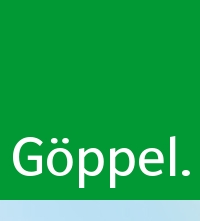What is the future of our energy supply?
Article for the publication 20 Jahre EUROSOLAR (20 years of EUROSOLAR) in November 2008
In Bavaria, an energy crisis ushered in the idea of the sustainable economy. In 1368, one of the largest firms at the end of the Middle Ages, the Stromer concern from Nuremberg, was faced with ruin. Overexploitation of the surrounding forests was endangering wood supplies for the company's own mines, smelting works and hammer mills. The Europe-wide demand for metal products from Nuremberg could no longer be met, due to energy scarcity. Prominent businessman and town councillor Peter Stromer therefore initiated a major programme for reforestation of the land around Nuremberg which had been cleared of trees. At the same time, strict laws ensured that wood could only be gathered in a sustainable fashion. This project was a success: the new forestry methods safeguarded energy supply for the free imperial city of Nuremberg and were even exported. Nuremberg's forestry experts disseminated their knowledge across the whole of the continent. In other words, further economic development was only possible because the laws of nature were once again being respected. We have to answer this same question for a highly developed industrial nation: will we succeed in providing energy in harmony with nature whilst also increasing prosperity?
For 20 years, EUROSOLAR has been making people aware of these vital questions. And this continuous dedication to a turnaround in the energy sector has been successful. Only a few years ago, the vision of meeting all energy needs through the use of renewable energies was rejected by many as an unrealistic delusion. Since the unremitting rises in oil prices began, people have ceased to doubt the fact that renewable energies must soon become the main pillar of our energy supply.
As was the case 650 years ago, we will only be able to maintain our standard of living through a courageous change of course. The future of energy is renewable: sun, water, wind, geothermal energy and energy crops. In the long term, we will only be able to access those amounts of energy for electricity, heating and mobility that we are able to gain from these sources. Intelligent policymakers create frameworks in a market economy which encourage entrepreneurs and engineers to develop creative solutions.
And it is partly thanks to the forward-thinkers at EUROSOLAR that German policymakers promoted the development of renewable energies sooner than was the case in other countries. In 1998, Germany introduced the Electricity Feed Act for the electricity sector. This was the correct approach and, by ensuring predictable levels of payment for electricity produced from renewable energy sources, the foundations were laid for a flourishing economic sector and the creation of jobs with a promising future. Renewable energies are now moving out of the fledgling stage. In February 2008, the proportion of renewable energies reached 18%, compared with only 6% in 2000. By 2020, renewable energies will provide 30% of German electricity supplies. Last year, a nationwide pilot project proved that intelligently linking wind, water and solar energy can provide a secure and reliable supply. In order to achieve this goal everywhere, renewable electricity generation will continue in the near future to require support. The aim of adapting the feed-in tariffs in the Renewable Energy Sources Act was to ensure that the use of renewable energies could be further increased without placing too heavy a burden on electricity consumers.
The next step must now be to anchor renewable energies permanently on the market. The market is the appropriate framework to allow adaptation of electricity generated from biomass, wind, sun, geothermal energy and water to consumer demands. So far, this has been a matter for the grid operators. The new law allows operators of renewable power plants to deliver electricity directly to the end customers if they so wish. This direct selling gives people the opportunity to experience a situation in which all of a region's energy needs are met by renewable energies. Local utility companies are thus able to offer environmentally friendly electricity from the region, whilst safeguarding security of supply.
And renewable energies will also play a major role in heat supply. In 2007, the proportion of renewable energies in heat supply was only 6.6%. The technologies needed to rapidly increase this proportion are available. Renewable energies in the heat-supply sector are a "sleeping giant", who will be roused from his sleep by the new Renewable Energies Heat Act. The proportion of renewables in heat supply in Germany will rise to 14% by 2020.
All new buildings built in the future will have to meet a proportion of their heating needs from renewable sources. The use of renewable energies in older buildings is being promoted by direct investment subsidies in the framework of the market incentives programme. The Federation is making available €500m per year to this end.
The vision for the future is the "Plus Energy House". Already, with the technology available today, new or refitted buildings can generate more energy than they consume. Thanks to heat insulation of the Passive House standard, solar architecture and energy-efficient electrical appliances, solar cells or small-scale combined heat and power stations generate more energy than such houses consume.
The technological options do exist for a safe, economically viable and environmentally friendly energy supply. I hope that EUROSOLAR will continue over the next 20 years to exert pressure on politicians, persuading them to establish a framework in which these options can be used and developed further, in the interests of businesses, jobs and climate protection.
Josef Göppel

